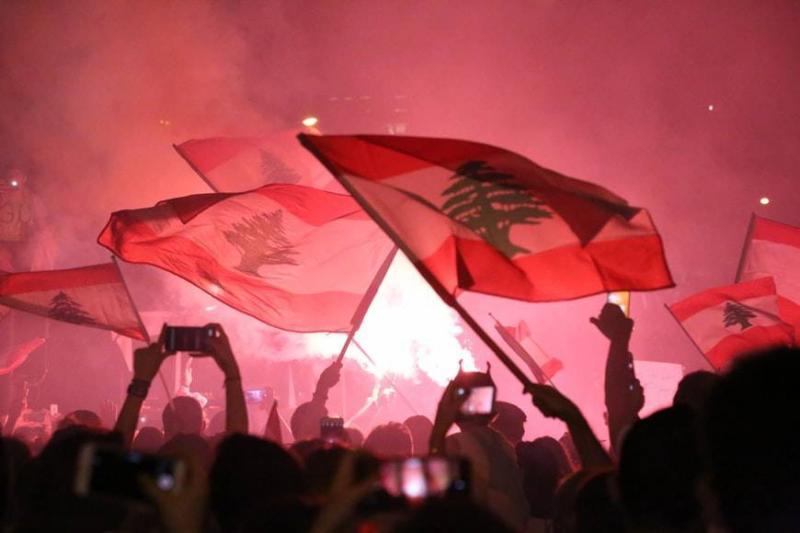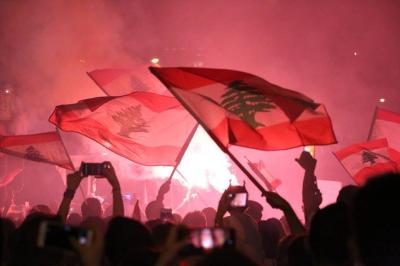A series of positive developments concerning Lebanon have become apparent. While it is still too early to provide clear explanations regarding the details of some positive changes and their motivations, it is evident that external influences are pressuring to prevent Lebanon from facing a major crisis. The return of the Saudi and Kuwaiti ambassadors to Lebanon coincides with the announcement of an agreement between the Lebanese government and the International Monetary Fund (initial and conditional funding of $3 billion for Lebanon), as well as the announcement of Pope Francis's visit to Lebanon next June.
All this is happening in conjunction with a French-Gulf communication aimed at stimulating what can provide humanitarian aid, as well as the availability of regional conditions that may appear promising, particularly following the surprising developments in Yemen for both Yemen and the region. Additionally, we cannot overlook the ongoing negotiations in Vienna that could lead to either positive or negative developments within Iran's sphere of influence in the Middle East, including Lebanon.
The connection between the missiles fired by the Revolutionary Guard at Erbil in northern Iraq on March 13 or the Houthi attacks targeting oil facilities in Saudi Arabia on March 20, and the negotiations in Vienna is notable. However, Iran's support for a ceasefire in Yemen and its push for the Houthis toward it, along with the silence of "the suburbs" in Lebanon regarding this development, are details that must be included in the ongoing last-minute negotiations in the Austrian capital.
The return of Gulf and Arab sponsorship, as suggested by the visit of Maronite Patriarch Bechara al-Rahi to Egypt and his meeting with Egyptian President Abdel Fattah al-Sisi on March 20, reflects a regional dynamic aimed at embracing Lebanon. This approach aligns with the region's countries striving to organize their ranks, as demonstrated by the recent summits in Sharm El Sheikh and Aqaba, as well as the UAE's reception of Syrian President Bashar al-Assad.
It may not be coincidental that developments concerning Lebanon are rapidly emerging at pivotal moments that some describe as historical. One of the most significant moments is related to the war in Ukraine, which has直接 impacts on the region concerning energy and food, as well as generating international geostrategic shifts and changing alliances that are revealing themselves in the region.
However, the immediate moment is tied to the fate of the negotiations Iran is conducting with the P5+1 group and the United States regarding its nuclear program, which will have direct implications for Lebanon whether a new agreement is reached or not. In this context, Iranian Foreign Minister Hossein Amir-Abdollahian's visit to Beirut on March 24 anticipated this crucial matter by emphasizing Iran's influence over Beirut’s decisions just before the Arab “return” to Lebanon.
It appears that Tehran's support for cooling the fronts in Yemen is, so far, accompanied by a cooling of the tone from its affiliated platforms regarding the positive atmosphere expressed in the statements from the foreign ministries of Saudi Arabia and Kuwait welcoming the promises of the Lebanese government and its Prime Minister Najib Mikati, as well as regarding the return of the ambassadors of both countries to Beirut. While dialogue sessions between Iran and Saudi Arabia are currently stalled, the two countries express their conflicting or coexisting interests in both Yemen and Lebanon. If Iran engages in a ceasefire in Yemen and its Houthi ally boycotts Yemeni-Yemeni consultations in Riyadh while attacking the resulting Presidential Council, Iranian behavior in Lebanon serves as a critical front for the approach Iran will adopt concerning renewed international and Arab initiatives in Lebanon.
The external developments revolve around the crucial internal Lebanese issue relating to the parliamentary elections scheduled for May 15. France is significantly interested, especially as it is engaged in its presidential elections, in reinforcing its presence along with international Arab efforts in Lebanon. Notably, Paris maintains friendly relations with the Gulf amidst the cold and tense relations in the region with Washington, as well as ties with Iran and its ongoing communication with Hezbollah, alongside its advanced position in Europe and coordination with Washington regarding Lebanon.
According to a French-American-Arab roadmap, external stances are converging in preparation to rescue Lebanon, as evidenced by the initial discussions with the International Monetary Fund (whose outcomes have been welcomed by Congress in Washington). In this climate, Pope Francis, as the head of the Vatican City, has decided to join other countries in imposing a new international reality, thus establishing the backdrop for his visit to the troubled country following the formation of its new parliament.
Amidst this broader scene, Tehran and its allies in Lebanon contemplate their position while considering the realities that will emanate from Vienna. However, external transformations concerning Lebanon are not intended to influence the elections in May. Rather, these developments seem to seek to seize the Lebanese moment following those elections. Particularly striking is Patriarch Bechara al-Rahi's call for "not only the names of the deputies to emerge from the ballot boxes but also Lebanon's identity." This emphasizes the need to reassess transformations regarding the positioning of Lebanon regardless of the nature of its new parliament, which is also what Tehran and its allies in Lebanon are preparing for.




